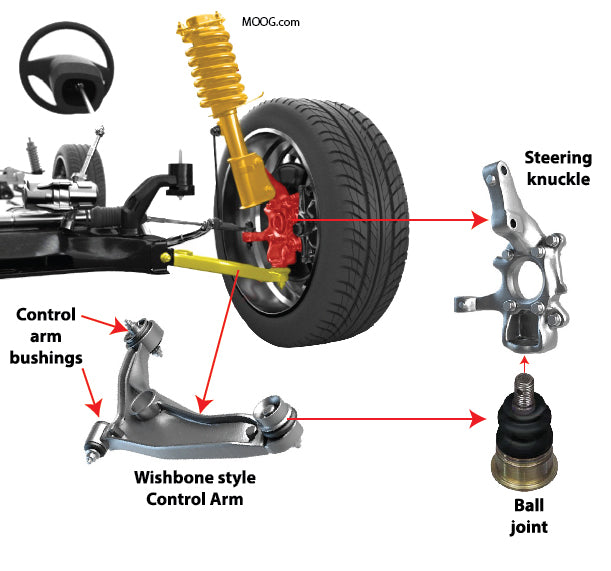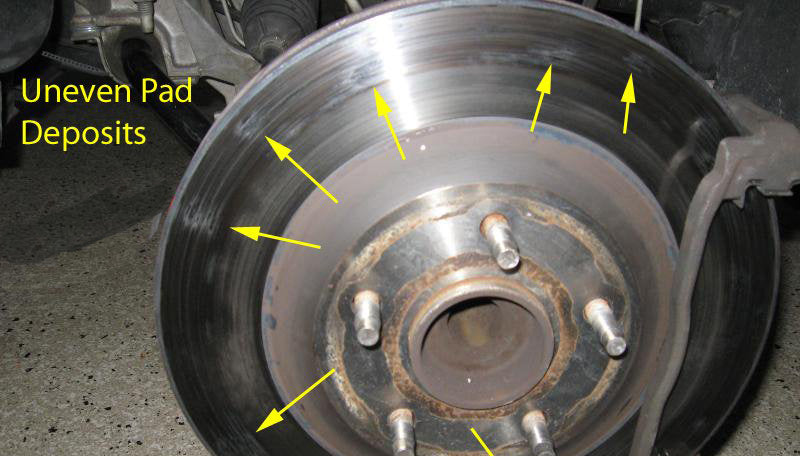What is a Differential, How Does it Work, and How Do I Take Care of it?
Wheels on the same axle don’t always move at the same speed when the vehicle turns. Your vehicle has an important part, called a differential, that negotiates this difference so that you stay in control of your vehicle every time you make a turn.
Your differential is an essential component of your car, van, truck, or SUV, but when it’s working properly, it’s something you probably don’t give a lot of thought to.
Here’s everything you need to know about what a differential is, how it works, and what you can do to take care of it to avoid potential problems down the road.
What is a differential?
A differential is a gear train that’s made up of three shafts, gears, bearing and related components. Essentially, its purpose is to make sure that every wheel drives smoothly, even if they move at different speeds. All cars, trucks, vans, and SUVs have a differential, which allows the outer drive wheel to rotate at a faster pace than the inner drive wheel when you’re turning. This is important so that the speed differences can be balanced, giving you a smooth turn.
An example of a vehicle that doesn’t have a differential is a go-kart. When you drive a go-kart, it’s harder to steer in a turn and turn because the wheels rotate at the same speed.
The differential has the property that the rotational speed of one shaft is either a fixed multiple of the average of all three shaft speeds, or that it is the average of the speeds of the others. When one wheel’s speed increases, it’s balanced out by another wheel’s speed decreasing.
How do I take care of a differential?
Like with most of your vehicle’s components, preventative maintenance is your best bet when it comes to caring for your differential. In most vehicles, the differential will last a good 150,000 miles or more. Even so, you can take simple steps to ensure your differential is in good condition to avoid putting yourself in a dangerous situation or paying for a more costly repair later.
Your differential oil should be changed every 30,000 to 50,000 miles, depending on your driving habits and its’ manufacturer’s specifications. This is a step that’s often overlooked, as opposed to the engine oil, which you get changed every 3,000 to 5,000 miles. You want to change your differential oil at regular intervals because, just like with your engine, metal-to-metal contact over the course of thousands of miles will wear down the surface and weaken your gears, thanks to the heat generated from the friction. Neglecting this important step can lead to major headaches later on.
How can I tell if my differential is bad?
Low-mileage vehicles generally don’t need to get a new differential, since this part can last over 150,000 miles. If you’re driving a car with that kind of mileage, though, make sure you know the warning signs of a differential going bad so you can take care of the problem now, before it turns into something more serious.
1. You hear a whirring, whistling, clunking, or howl sound coming from the front or rear differential.
If the noise seems to be coming from your wheels, it’s probably your differential. If you aren’t sure whether or not your differential is making noise bring it to Spring Works for an inspection to determine if there is an issue.
2. You don’t coast as well as you used to
Normally when you drive, you can keep your foot down on the accelerator to keep your speed as you coast down the road or highway. If you start to notice that it feels more like something’s pulling your car back instead of letting you coast smoothly, it could be your differential going bad. Your differential can affect how you coast because, when it goes bad, your wheels start to turn unevenly. This makes it feel like your wheels don’t quite have the pressure that they need to coast, resulting in the feeling that something’s holding them back.
3. You hear a clanging or banging sound near the axle
Have you ever put too many clothes inside your clothes dryer, only to hear the dryer start making loud banging and clunking sounds once you turn it on? That’s sort of how it sounds on your axle when your differential is going bad, only on a smaller scale.
When your differential starts wearing out, the parts get loose. This is what you hear banging around as your car’s axle turns its wheels. If you ignore this sound, you’ll end up damaging your axle and causing more problems that will be time consuming and costly to fix. So, if you hear your axle making banging sounds, get it checked out as soon as you can. Stop driving the vehicle so that you don’t keep damaging your vehicle, which will lead to more problems the more you drive.
4. You notice it’s harder to handle your vehicle
Anytime your vehicle stops handling the way you know it’s supposed to, something’s wrong. If you have a high-mileage vehicle, then it could be a sign that your differential is going bad. This is because the differential is no longer performing its function in making sure the wheels can move at different speeds.
5. You notice vibrations that increase with vehicle speed.
How to repair and service a differential
In most cases, you’ll want to repair your differential rather than replacing it. Your differential replacement cost will usually be much higher depending on the exact damage along with your vehicle’s make and model. You can learn more about our differential services here.
In most vehicles, the differential components don’t need to be replaced until you start getting over 150,000 miles on it. If you’re driving a high mileage vehicle and think that your differential is going bad, make an appointment today at Spring Works to have us take a look at it. We’ll provide you with repair and replacement options that will get you back on the road as soon and as safely as possible.



